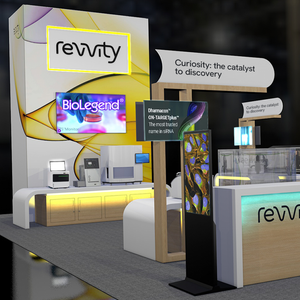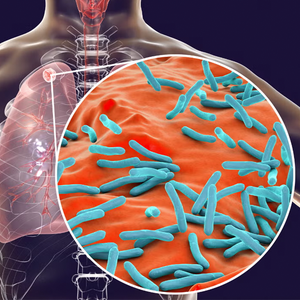

HTRF pAb Anti-Phospho-c-Jun (Ser73) Eu-Conjugate, 500 Assay Points
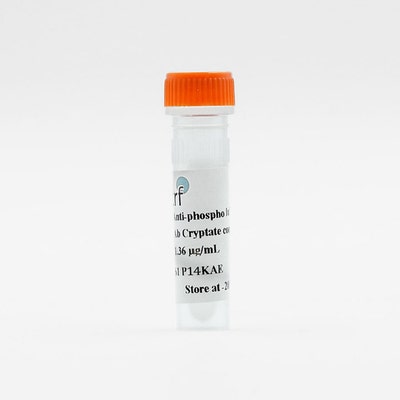

HTRF pAb Anti-Phospho-c-Jun (Ser73) Eu-Conjugate, 500 Assay Points
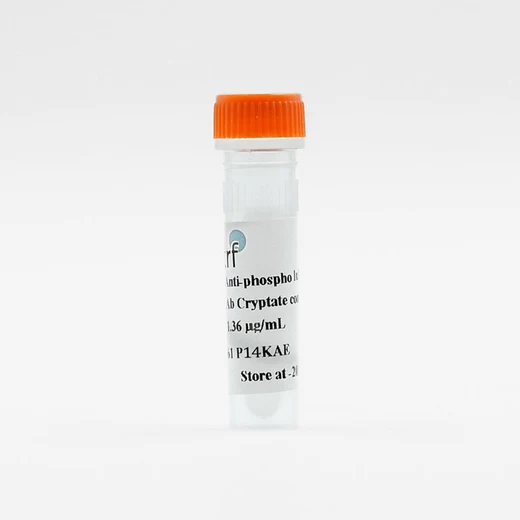


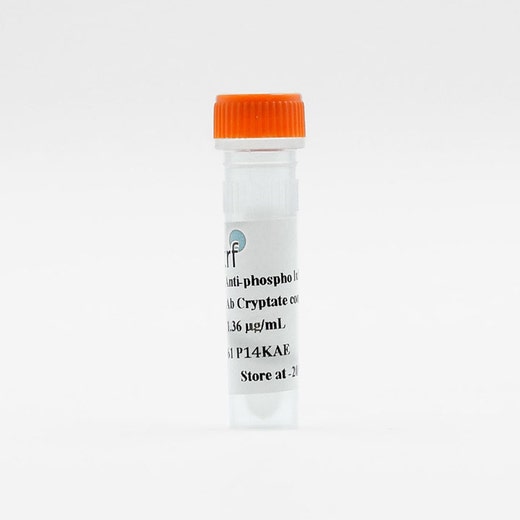


PAb Anti-phospho c-JUN cryptate enables the rapid detection of c-JUN phosphorylation on Ser 73 in a biochemical kinase assay format.
| Feature | Specification |
|---|---|
| Application | Biochemical Enzymatic Assay |
PAb Anti-phospho c-JUN cryptate enables the rapid detection of c-JUN phosphorylation on Ser 73 in a biochemical kinase assay format.



HTRF pAb Anti-Phospho-c-Jun (Ser73) Eu-Conjugate, 500 Assay Points



HTRF pAb Anti-Phospho-c-Jun (Ser73) Eu-Conjugate, 500 Assay Points



Product information
Overview
The Anti-phospho c-jun-Eu cryptate is a labeled polyclonal antibody enabling the rapid detection of c-jun only when phosphorylated at Ser73. It does not cross-react with the corresponding non-phosphorylated sequence. This allows the construction of a highly specific biochemical kinase assay. Any kind of substrate can be used, from small synthetic peptides to natural substrates, meaning high assay detection versatility. As HTRF tolerates extremely high ATP concentrations, an assay can be performed at physiological ATP concentrations.
Specifications
| Application |
Biochemical Enzymatic Assay
|
|---|---|
| Brand |
HTRF
|
| Detection Modality |
HTRF
|
| Molecular Modification |
Phosphorylation
|
| Product Group |
Fluorescent Reagent
|
| Shipping Conditions |
Shipped in Dry Ice
|
| Target Class |
Kinase
|
| Technology |
TR-FRET
|
| Therapeutic Area |
Cardiovascular
Infectious Diseases
Inflammation
Metabolism/Diabetes
NASH/Fibrosis
Neuroscience
Oncology & Inflammation
Rare Diseases
|
| Unit Size |
500 Assay Points
|
Video gallery

HTRF pAb Anti-Phospho-c-Jun (Ser73) Eu-Conjugate, 500 Assay Points

HTRF pAb Anti-Phospho-c-Jun (Ser73) Eu-Conjugate, 500 Assay Points

How it works
Assay principle
HTRF kinase assays typically use a combination of a Europium-cryptate labeled anti-phosphoresidue antibody, SA-XL665 and a biotinylated* substrate. The signal is proportional to the concentration of phospho-residues. *Alternatively, other tags such as 6HIS, GST, c-myc, DNP, or FLAG may be used to label the kinase substrate.

Assay protocol
HTRF kinase assays have two basic phases: 1. Enzymatic step: biotinylated substrate is incubated with the kinase of interest and with the compounds in presence of co-factors. The reaction starts with the addition of ATP. 2. Detection step: The phosphorylated biotinylated substrate is then detected by the addition of Streptavidin-XL665 and PAb Anti-phospho C-JUN-Eu cryptate , prepared in a buffer containing EDTA to stop the enzymatic reaction.

Resources
Are you looking for resources, click on the resource type to explore further.
Discover the versatility and precision of Homogeneous Time-Resolved Fluorescence (HTRF) technology. Our HTRF portfolio offers a...
This guide provides you an overview of HTRF applications in several therapeutic areas.
SDS, COAs, Manuals and more
Are you looking for technical documents related to the product? We have categorized them in dedicated sections below. Explore now.
- LanguageEnglishCountryUnited States
- LanguageFrenchCountryFrance
- LanguageGermanCountryGermany
- Lot Number06RALot DateSeptember 28, 2026
- Lot Number05RALot DateSeptember 8, 2026
- Lot Number06RALot DateSeptember 28, 2024
- Language06RACountrySeptember 28, 2026
- Language06ACountrySeptember 28, 2026
- Language05ACountrySeptember 8, 2026
- Resource TypeManualLanguageEnglishCountry-


How can we help you?
We are here to answer your questions.





